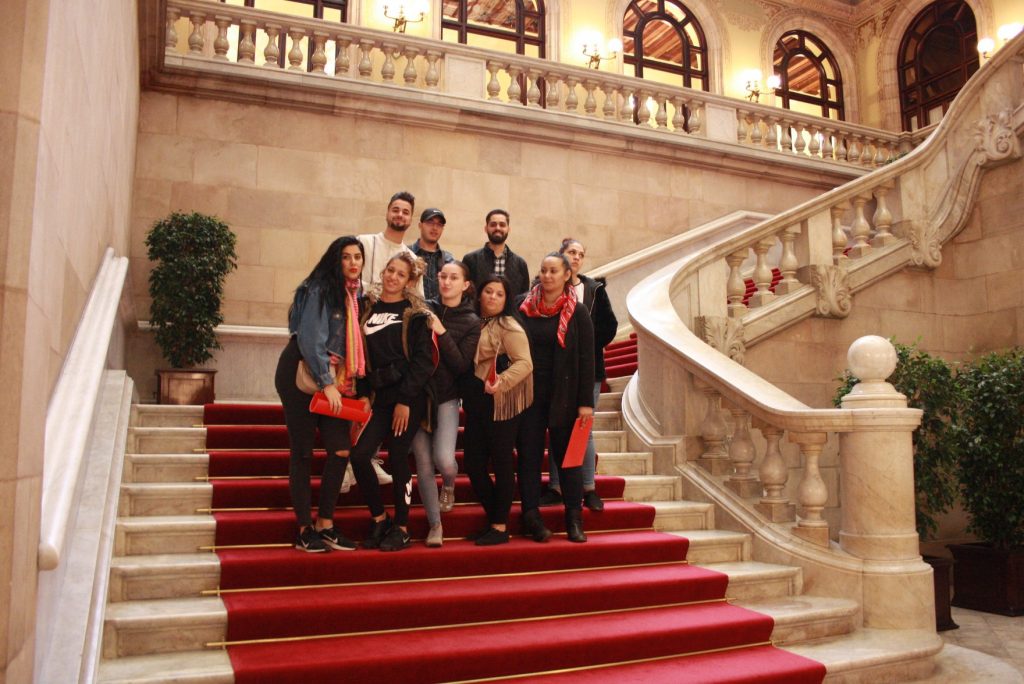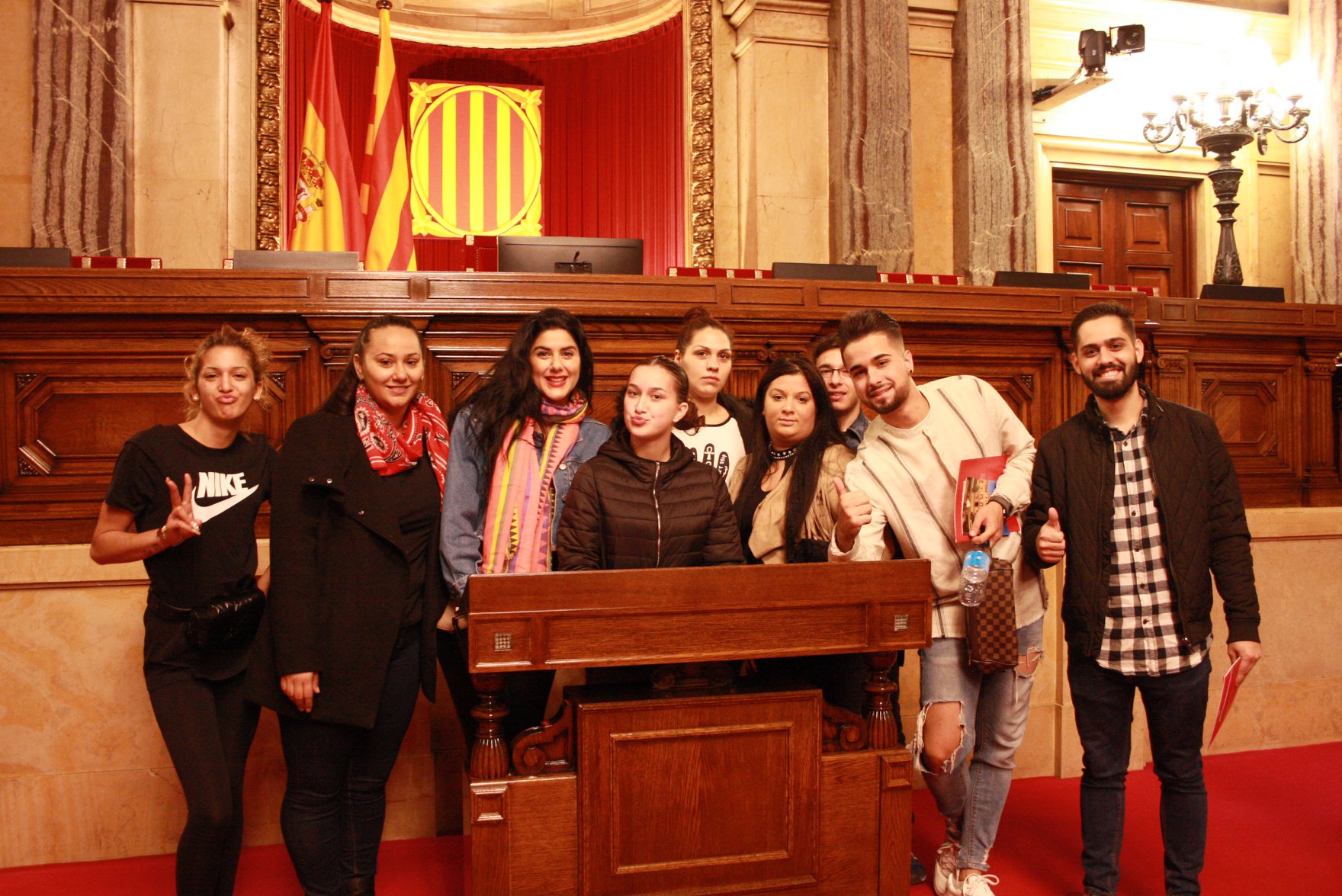A group of 15 young Roma people visited the Parliament of Catalonia on November 6. 2019 in order to understand its functioning, the division of power and how law and policies are made.
The visit was planned as an opportunity to make young Roma think about participation and also as an opportunity to meet each other in a different environment to create a network among young Roma.
Participants had the opportunity to debate about the feeling of belonging to the institutions. Most of them pointed out that they don’t see the Parliament as a place where they interests are represented at all. To quote one girl “Why they even bother to try to do laws if everything in the world is going so crazy?”
It was interesting for them see where the decisions are made, but they come back with even more questions about what they can actually do as young Roma. We closed the visit with one question, “When a Roma will be seated in the hemicycle of the Catalonian Parliament?”
Participants also reflected on how descions made and does it really reflect the diversity of the Catalan society? “Are we the Roma representented? When we will see our brothers and sisters sitting in these rooms”?
After the visit, the group went to the office of FAGiC where they had lunch and then continued the discussion about the future of Roma youth, if political representation is important or not for their future as citizens, and if yes, what are the steps towards that. It was very interesting to compare also the different opinions regarding their neighbourhood and family situation. But the most important was the sense of belonging to a community and to keep the identity as something positive.
Participants expressed that they were all happy with the meeting and willing to participate in more activities like it. They also mentioned that all these information they gathered help them to see from another prospective the actual political situation in Catalonia and its very useful just right before the elections on November 10.

The meeting was part of the Roma Youth Voices Project, funded by the Rights, Equality and Citizenship Programme of the DG Justice, European Commission.



